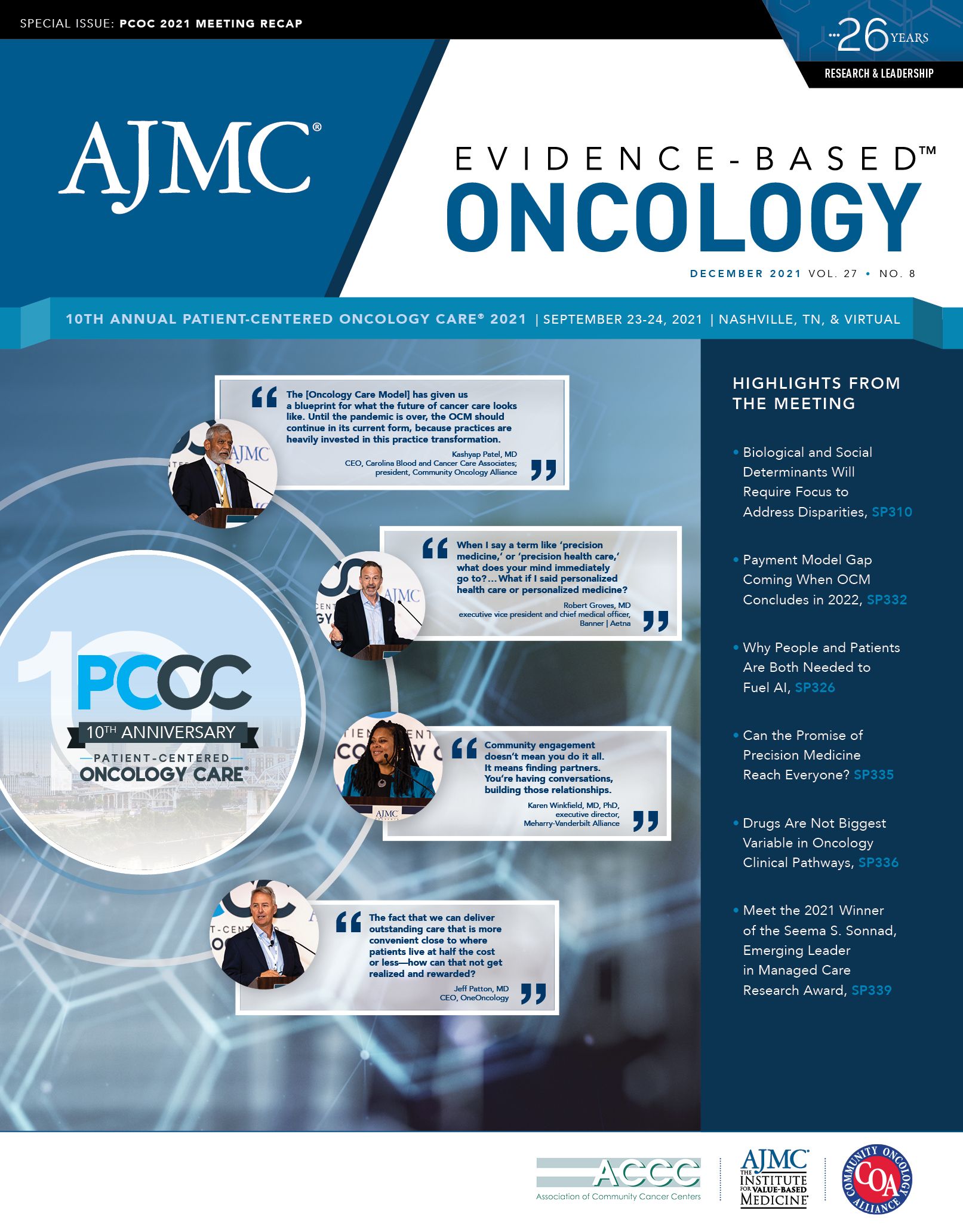- Center on Health Equity & Access
- Clinical
- Health Care Cost
- Health Care Delivery
- Insurance
- Policy
- Technology
- Value-Based Care
PCOC Spotlight: How Community Oncology Is a Low-Cost, High-Quality Provider
Jeffrey Patton, MD, is the CEO of OneOncology, a national partnership of independent community oncologists based in Nashville, Tennessee. He is also executive chairman of the board, Tennessee Oncology, and a member of the board, Community Oncology Alliance.
Having the option of receiving care in their community instead of a large hospital located hours away is not only a benefit for many patients, but research results are showing that community oncology practices are also a low-cost, high-quality provider of care, explained Jeffrey Patton, MD, executive chairman of Tennessee Oncology and CEO of OneOncology.
How will hospital price transparency impact community oncologists?
PATTON: I hope that the pricing transparency shines a bright light on what we already knew, which is to show the payers in the world that we are the low-cost, high-quality provider. Hopefully, that will allow a steerage of patients our way and really drive our businesses and help us thrive.
Since the first paper was published on January 15, [2021],1 I’ve done 4 talks. My talk on [September 24, 2021, was] about hospital tr ansparency, largely talking about community oncology [and how it] is the high-quality, low-cost provider. Now we have data to prove it. An article was published about the 340B hospitals and their transparency, and they’re marking up those discounted prices as much as the other acute care hospitals.2
So, I hope that transparency drives payers to have better conversations with us and hopefully stops the mass exodus of community oncology to hospitals and allows physicians who want to come back and practice in the community the opportunity to do so.
What is the tole and the benefit of a community oncologist vs a big medical center?
PATTON: For me, the primary thing is that we’re able to deliver care at a convenient place close to where patients live, instead of in a hospital campus where it’s, you know, hard to park. In Tennessee, we go out to rural areas an hour outside of Nashville, and it’s just mom-and-pop, and we’re delivering care right there in the community where patients are in a very convenient location. That’s one [thing].
[Second], as independent oncologists, we own our practice, so we get to make our own rules and we’re very nimble, and so we can adjust to changes in both care and care patterns, and the regulatory environment.
To me, the independence of owning your own practice and providing a more convenient location for patients is a lovely combination.
Other than COVID-19, what is the biggest challenge facing community oncologists right now?
PATTON: I think it’s always being worried about what the government’s going to do. There are unintended consequences—just like 340B, I think, has ballooned into something it shouldn’t have. And it’s pushed physicians toward hospitals, which is a more expensive site of service, which we now have proof of. So, I don’t worry about the government doing things against us, but I worry about them doing things that have unintended consequences.
Now the cost of cancer care is exploding, and [the government] wants to do something—I just worry that they’ll do something that’s not right for community oncology. And I know that patients deserve the choice of either been cared for in their communities, where they live, or going to a large hospital in a large city. That should be their choice, but I think they should have that choice. Unfortunately, the wrong law could push the world [to a place] such that we can’t practice independently, which would be a shame.
References
1. Gal R. US healthcare: as hospitals are forced to release real prices, we learn their drug markups average 250%; will dynamics change? Sanford C. Bernstein & Co. January 15, 2021.
2. Gal R. Examining hospital transparency, drug profi ts and the 340B program. MotoBioadvisors. Community Oncology Alliance. September 14, 2021. Accessed October 19, 2021. https://communityoncology.
org/hospital-340b-drug-profi ts-report/

